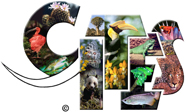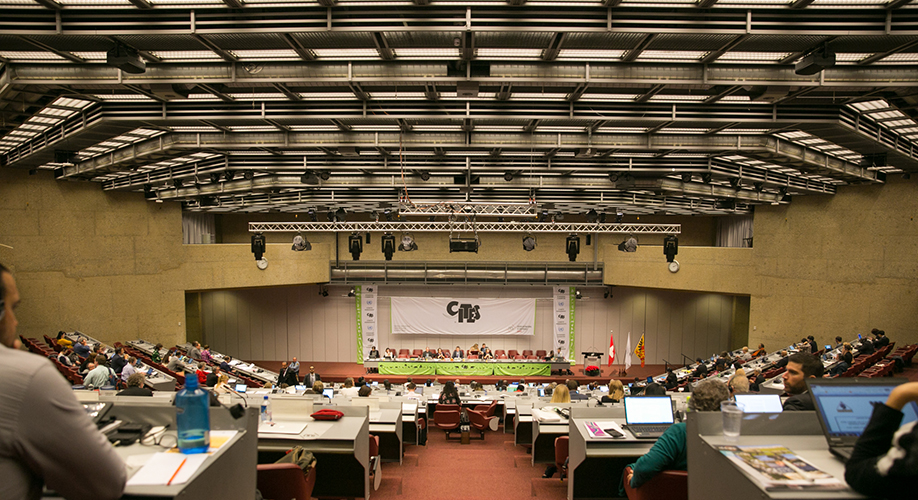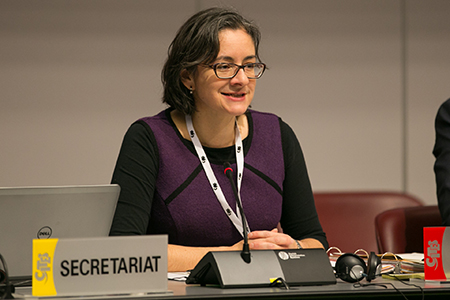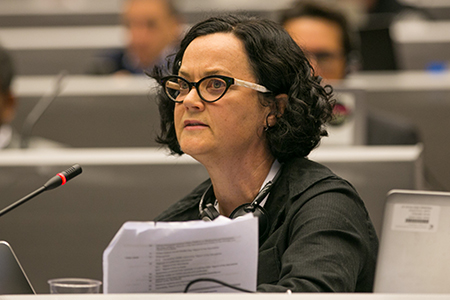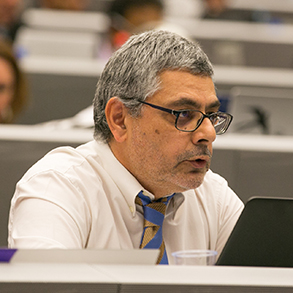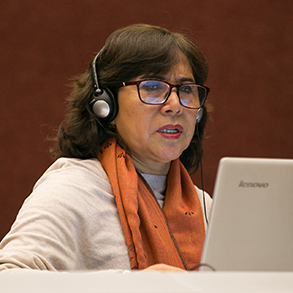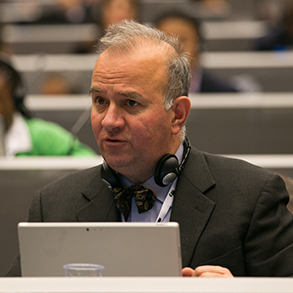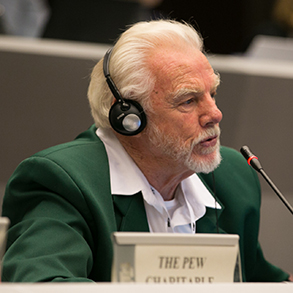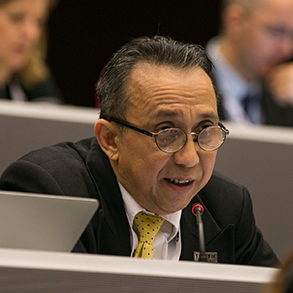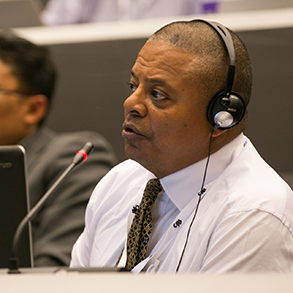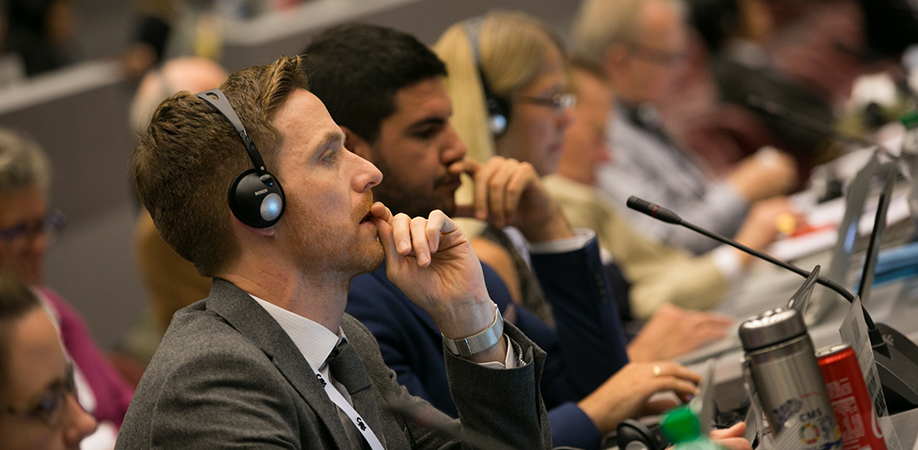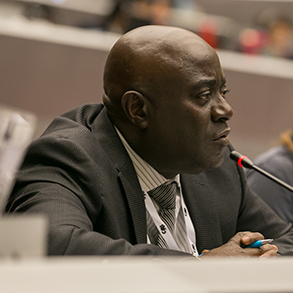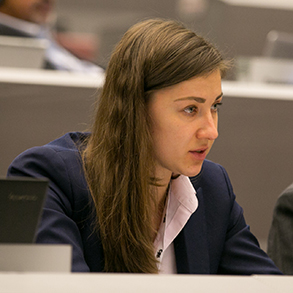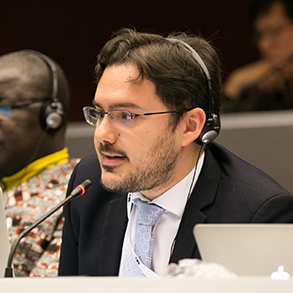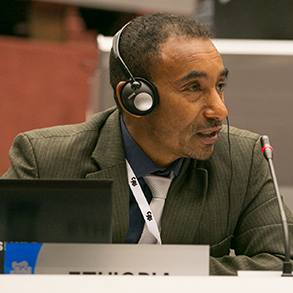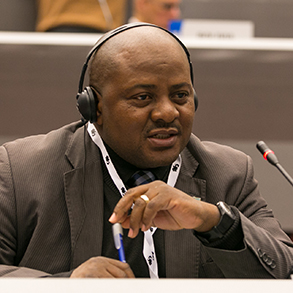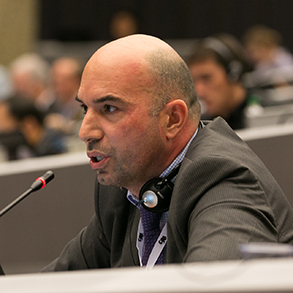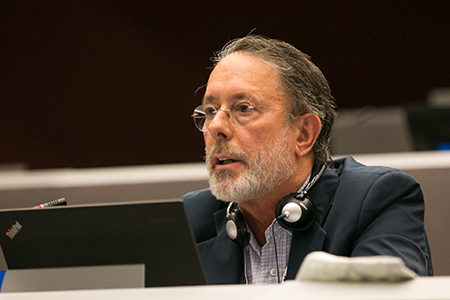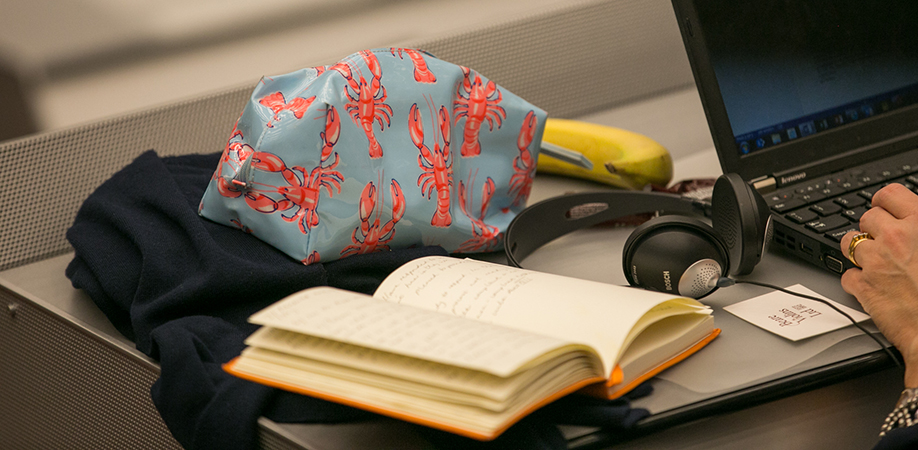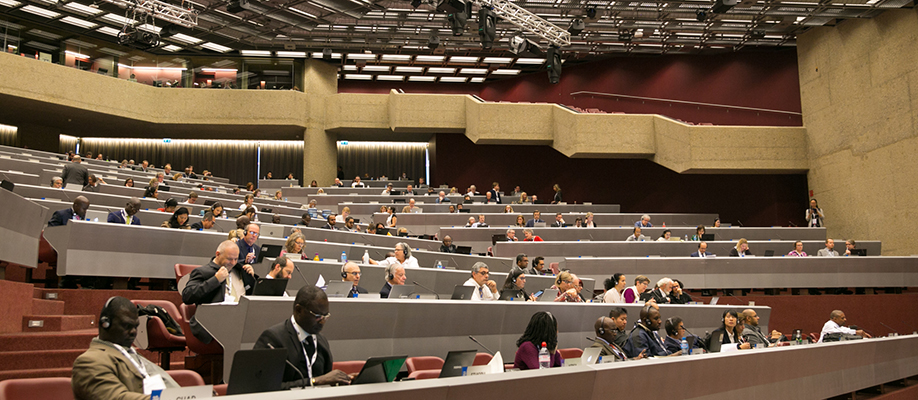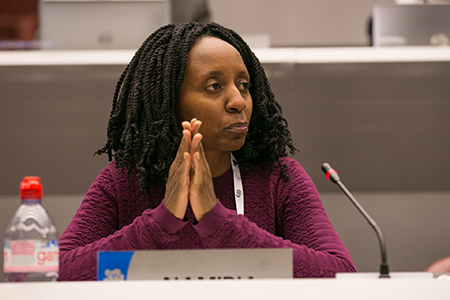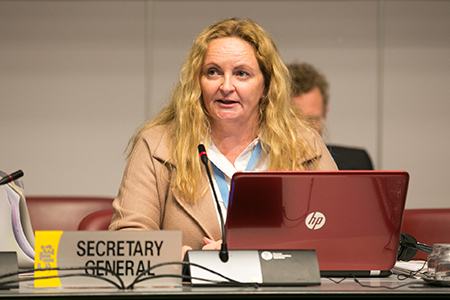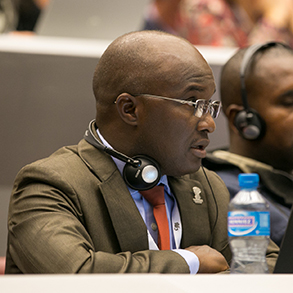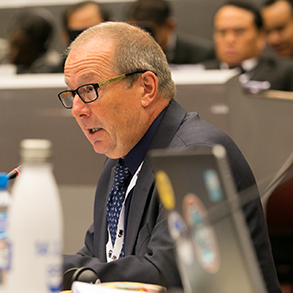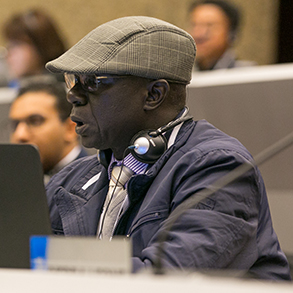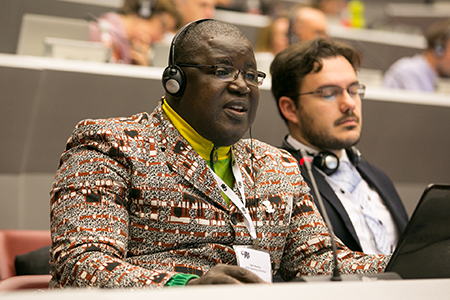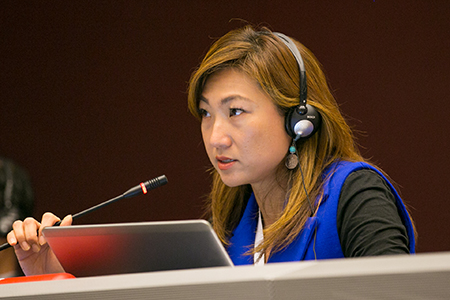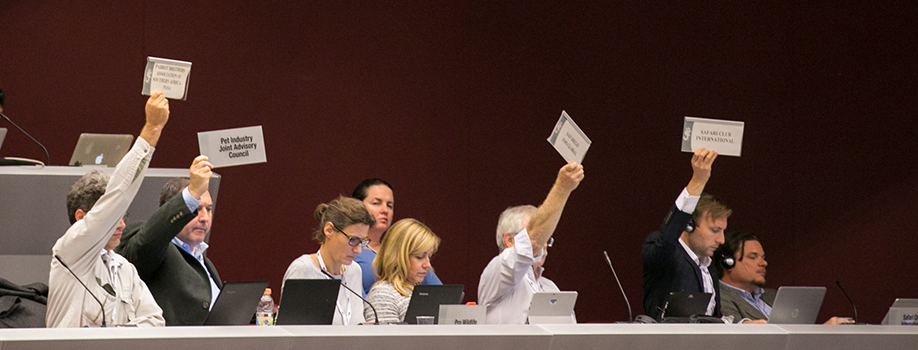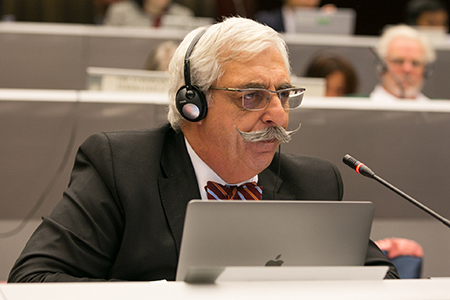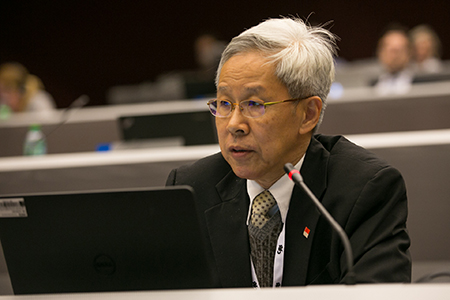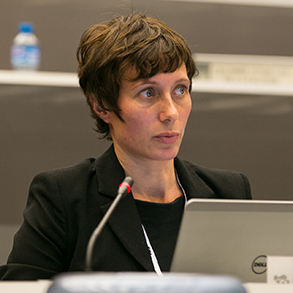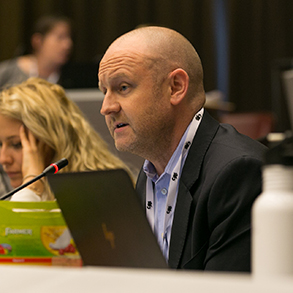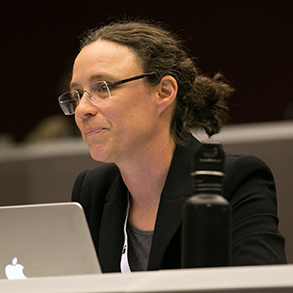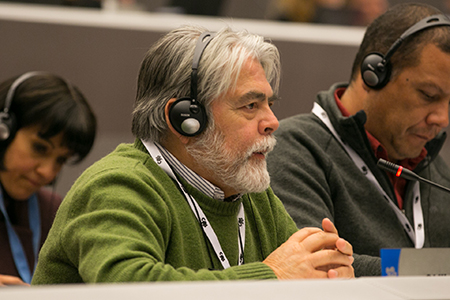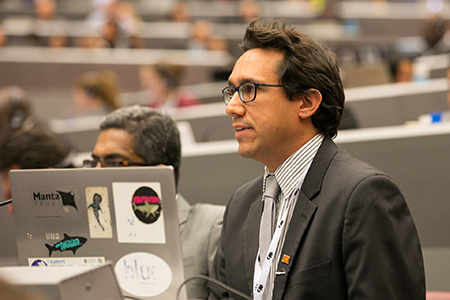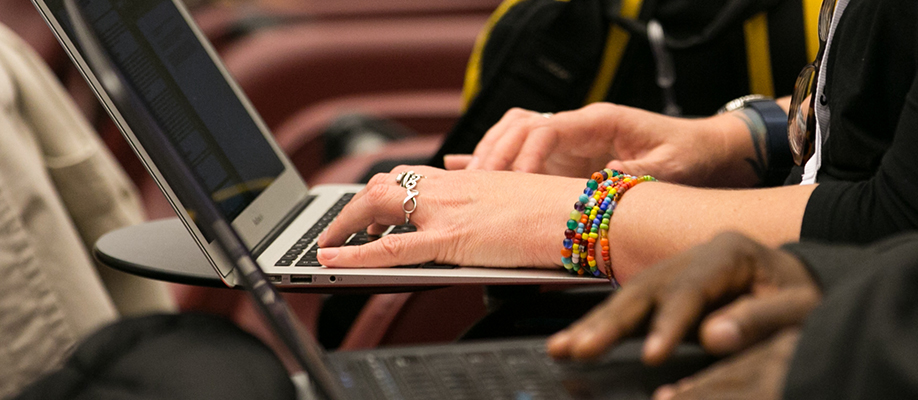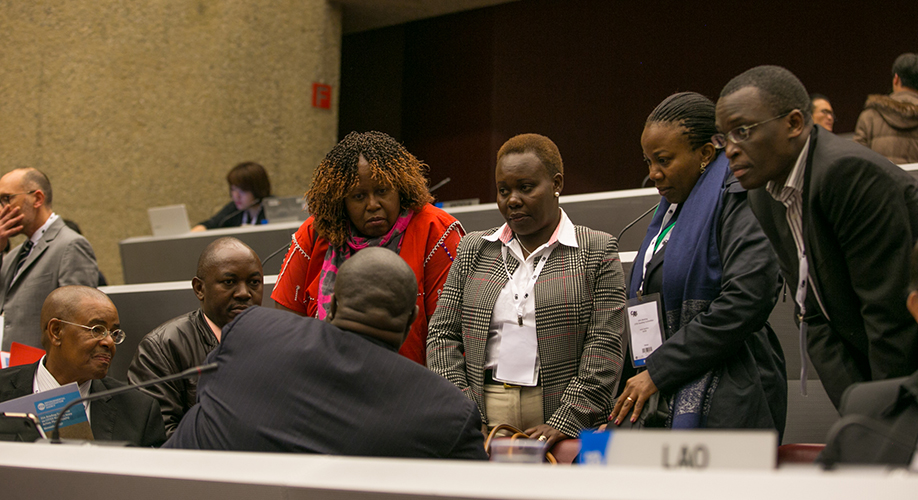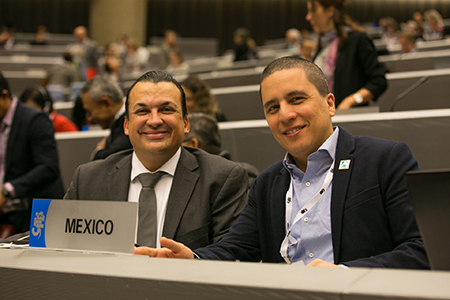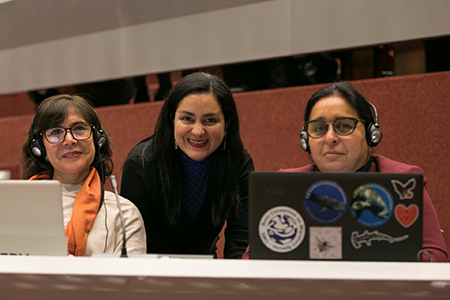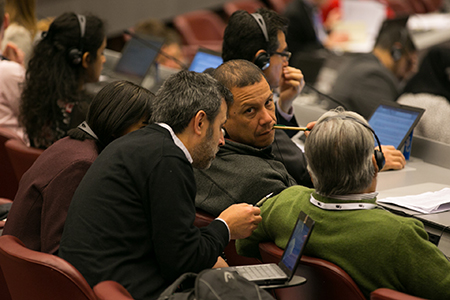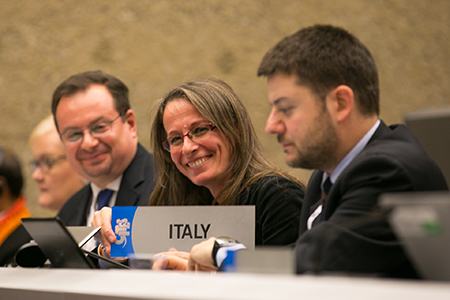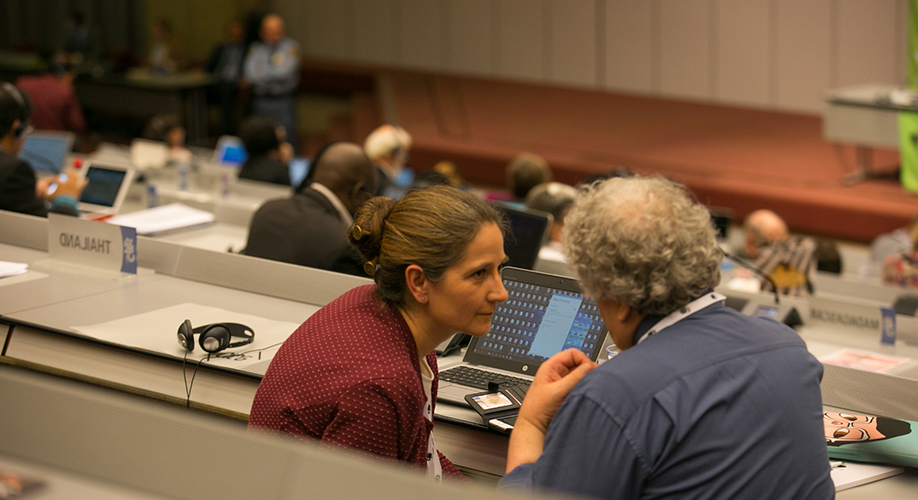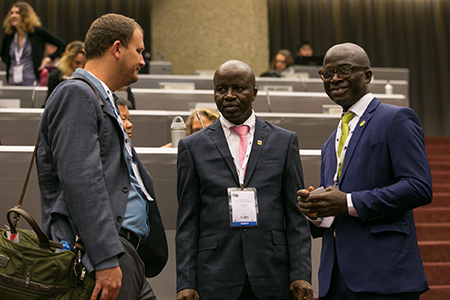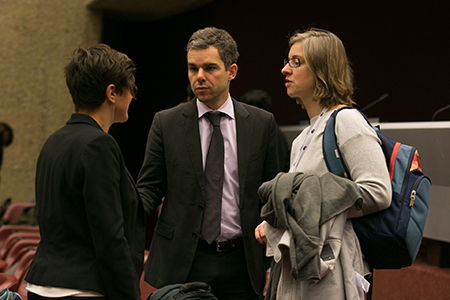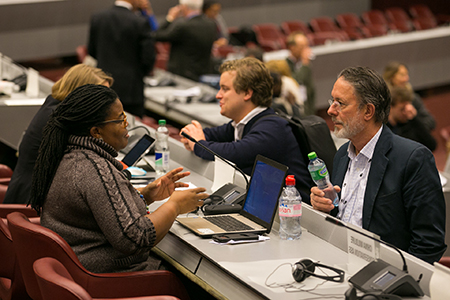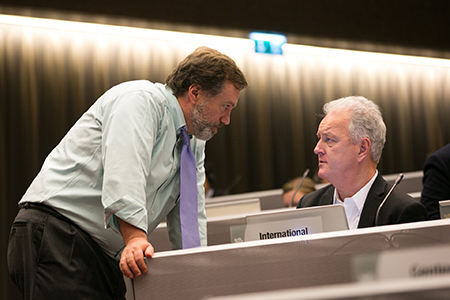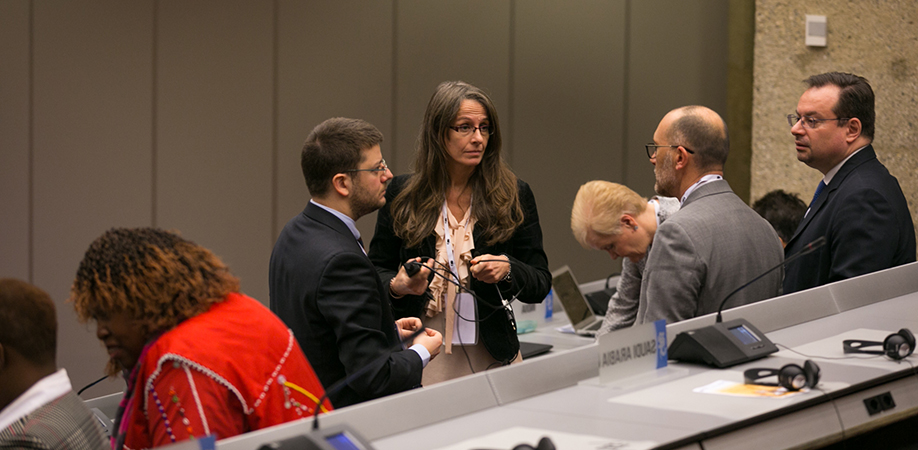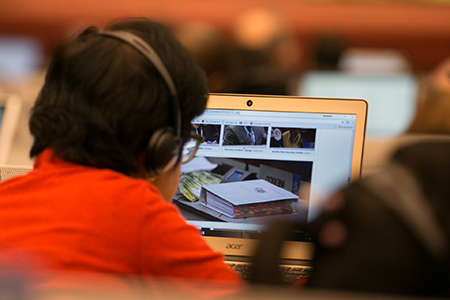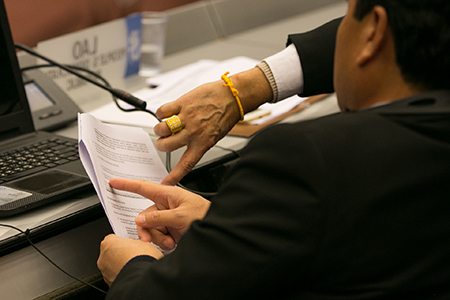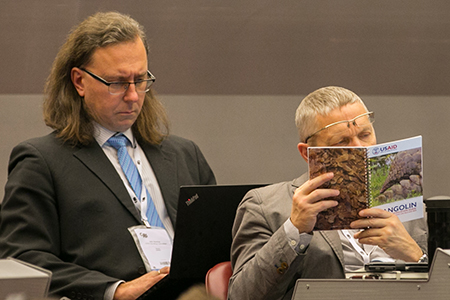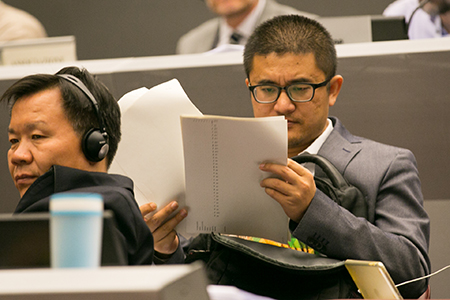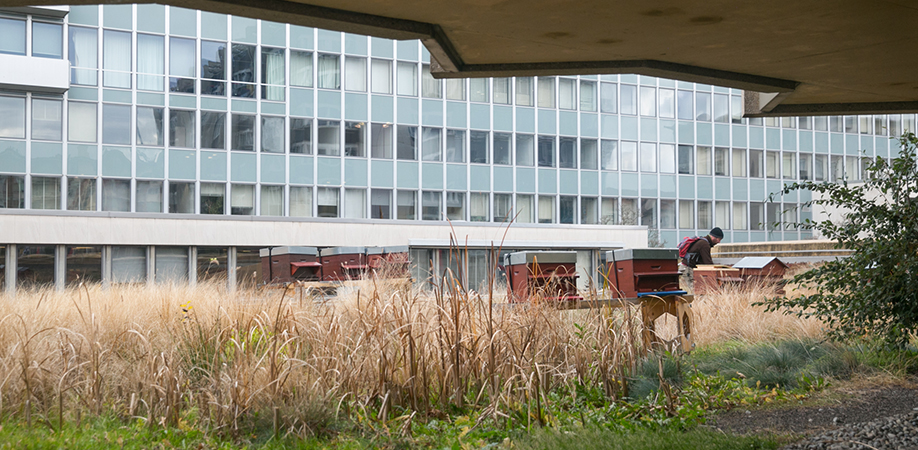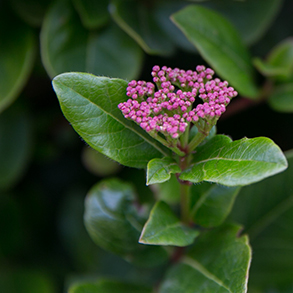Summary
On Wednesday, the Standing Committee (SC) resumed its discussions in plenary. In-session working groups continued to meet on the margins of the meeting, including in the evening.
In the morning, the SC deliberated on matters of food security, livelihoods, engagement of rural communities in CITES and terminology related to local, indigenous and rural communities. Interventions from participants included pleas to consider the effects of CITES decisions on local people. Intersessional working groups were formed on livelihoods and on rural communities, with the chair of the latter tasked with identifying relevant rural community representatives in consultation with parties. The SC also considered reports on the Intergovernmental Science-Policy Platform on Biodiversity and Ecosystem Services (IPBES), UN World Wildlife Day, combating wildlife cybercrime, disposal of confiscated specimens and specimens produced from synthetic or cultured DNA.
In the afternoon, the SC returned to the issue of livelihoods and food security, agreeing to a revised mandate for an intersessional working group. Discussions proceeded quickly on purpose codes on CITES permits and certificates, definition of the term “appropriate and acceptable destinations,” electronic systems and information technologies and traceability, as well as cheetahs. Delegates also discussed issues related to sturgeons and paddlefish, sharks and rays, the African lion and CITES Appendix III. Several intersessional working groups were formed.
At an event held alongside CITES SC69, the International Consortium on Combating Wildlife Crime (ICCWC) announced new funding to step up the fight against illegal wildlife trade. The new funding will come from the EU (EUR 13,500,000), Germany (EUR 400,000) and the UK (GBP 4,000,000), which in addition to the support provided by France and the Principality of Monaco (EUR 85,000 and EUR 200,000), totals USD 20 million for the implementation of the ICCWC Strategic Programme 2016-2020.
IISD Reporting Services, through its Earth Negotiations Bulletin (ENB) Meeting Coverage, has provided daily web coverage, and a summary and analysis report from the 69th Meeting of the CITES Standing Committee. The summary and analysis is available in HTML and PDF.
Photos by IISD/ENB | Kiara Worth
For photo reprint permissions, please follow instructions at our Attribution Regulations for Meeting Photo Usage Page.
Morning Plenary
View of plenary during the morning session
Carolina Caceres, Standing Committee (SC) Chair, Canada
Sarah Bagnall, New Zealand
João Loureiro, Portugal
Sara Yalle Paredes, Peru
Basile van Havre, Canada
Ron Thomson, The True Green Alliance
Sabri Zain, TRAFFIC
Maurice Isaacs, the Bahamas
Daven Joseph, Antigua and Barbuda
Kristina Rodina, Food and Agriculture Organization of the UN (FAO)
Nero Cunha Ferreira, Brazil
Kumara Wakjira, Ethiopia
Felix Monggae, Botswana
Thierry Lucas, UN Environment Programme (UNEP)
Olga Kumalo, South Africa
Max Abensperg-Traun, Austria
Afternoon Plenary
Delegates during the afternoon plenary
Elly Hamunyela, Namibia
Karen Gaynor, CITES Secretariat
Ali Laouel Abbagana, Niger
Mathias Lörtscher, Switzerland, Chair of the Animals Committee (AC)
Abba Sonko, Senegal
Benoit Doamba, Burkina Faso
Iris Ho, Humane Society International
Observer delegates raise their placards to be included in a working group
Armen Petrossian, International Caviar Importers Association
Tan York Chor, Singapore
Clara Nobbe, Convention on the Conservation of Migratory Species of Wild Animals (CMS)
Paul De Ornellas, Zoological Society of London (ZSL)
Elizabeth Ferguson, Australia
Antonio Palma Inostroza, Chile
Daniel Fernando, Sri Lanka
Around the Venue
Delegates from Kenya
Delegates from Mexico and the International Fund for Animal Welfare (IFAW)
Delegates from Peru
Delegates from Chile
Delegates from Italy
Delegates speak informally
A delegate reads the International Institute for Sustainable Development (IISD) Earth Negotiations Bulletin (ENB) website
Delegates review a document
Bee hives at the venue
